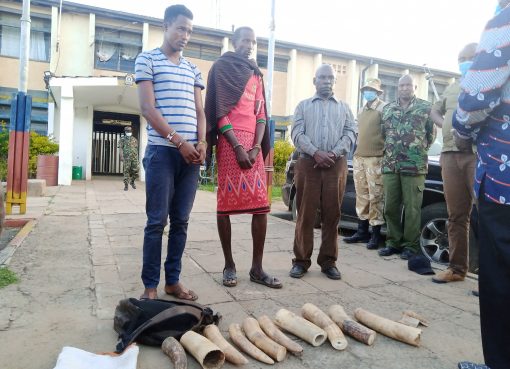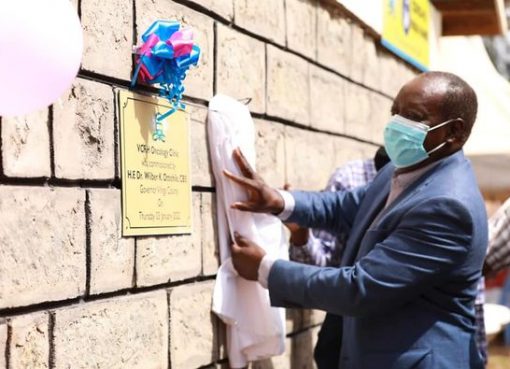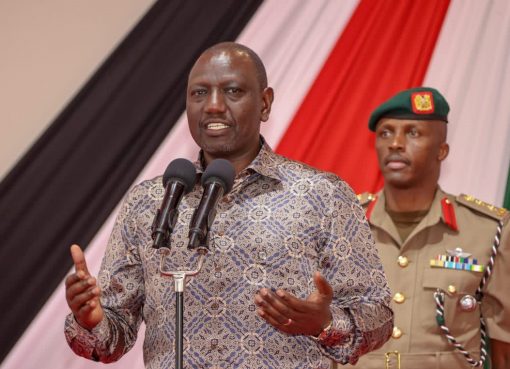
Photo by Hussein Abdullahi
The holy month of Ramadhan which is currently underway is the ninth month of the Islamic calendar and is observed by Muslims worldwide as a month of fasting and reflection.
And in Mombasa during the holy month of Ramadhan it is also a time when street vendors across the coastal city set up irresistible makeshift food bazaars known locally as the ‘Taj Mahal’.
While Ramadhan is a month of fasting and deep reflection, devotion to God and self-control, it is also a time for socialising, food sharing and festive atmosphere.
Food vendors offer an opportunity to sample a wide range of Swahili cuisine in one spot. Ramadhan is a time when people indulge in sweets and sumptuous meals with their families.
Hundreds of street vendors across Mombasa sell a variety of Swahili homemade delicacies that are irresistible and used in iftar (the fast-breaking meal observed during Ramadhan).
Entire streets are taken over by the food vendors during the Ramadhan season and transformed into a vibrant food bazaar but Muslims have to wait until dusk to partake in the mouthwatering myriad delicacies.
Throughout the month, people throng the many crowded Ramadhan food bazaars specially set up for the faithful to buy Swahili cuisine to break the fast.
The mushrooming food bazaars in the streets of Mombasa during the fasting month have become an annual phenomenon.
It is brisk business and a month of windfall for Ramadhan food traders as many households and visitors head to the bazaars to buy ready-made meals for their breaking of the fast.
A spot check by KNA on the open air eateries show people arriving as early as 4 pm to buy their favorite delicacies to be used to break the fast at around 6.20 pm.
Ramadhan bazaars are special and popular as some traditional and rare delicacies they sell are only found during the fasting month.
“It is as if the irresistible Swahili street food gets even better during Ramadhan,” said Andrew Kimani while purchasing samosas along Digo road.
Some of the delicacies sold in the open include dates, pancakes, kebab, Shewerma, samosas, mahamri (Swahili doughnut), Kaimati (sweet dumplings) and Viazi karai (fried potatoes) among other array of delicacies.
Dates are sweet fruits that grow in a palm-like tree and are mostly found in the Middle East countries including Saudi Arabia, Iran, Jordan, Syria and United Arab Emirates.
Council of Imams and Preachers of Kenya (CIPK) Organising Secretary Sheikh Mohamed Khalifa says dates are traditionally the first food faithful break their daylong fast with in the evening.
The rise in popularity of Ramadhan bazaars may be directly attributed to the wide range of food sold and the opportunities afforded to the many stallholders.
The food bazaars not only make it convenient for Muslims observing the fast to buy food at economical prices but have attracted non-Muslims to buy delicacies even though they are not observing or breaking any religious fast.
“The various food items on sale are genuinely home-cooked and freshly made to be sold only in the afternoons for consumers to buy and take home to break the fast,” says Athman Yussuf a street food vendor.
He said the food are homemade and follows authentic recipes something that rarely found in restaurants.
Ramadhan is a time when Muslims around the globe focus on prayer, fasting, giving charity and religious devotion.
The month commemorates the first revelation of the Holy Quran (Koran) to Prophet Muhammad according to the Islamic faith.
The annual observance is regarded as one of the Five Pillars of Islam and the month that the 30 day period is based on the sightings of the new crescent moon.
Chief Kadhi Sheikh Ahmed Muhdhar contends the blessed month of Ramadhan is about sacrifice.
“One of the greatest objectives of the month of Ramadhan is to understand what others go through, and empathize with less fortunate in the society” said sheikh Muhdhar.
Sheikh Muhdhar said during the blessed month, Muslims observe a strict fast between dawn and dusk and participate in pious activities such as Koran recitation, prayers and charitable giving.
The religious leader-cum-judicial officer said Ramadhan is a time for renewing faith and purifying ‘heart and soul’ for the millions who share in the Muslim faith around the world.
He said Muslims should refrain from talking ill of others and participate in acts of compassion.
“Generally Ramadhan is a period of intense reflection, spiritual renewal and peace” he observed.
By Hussein Abdullahi





